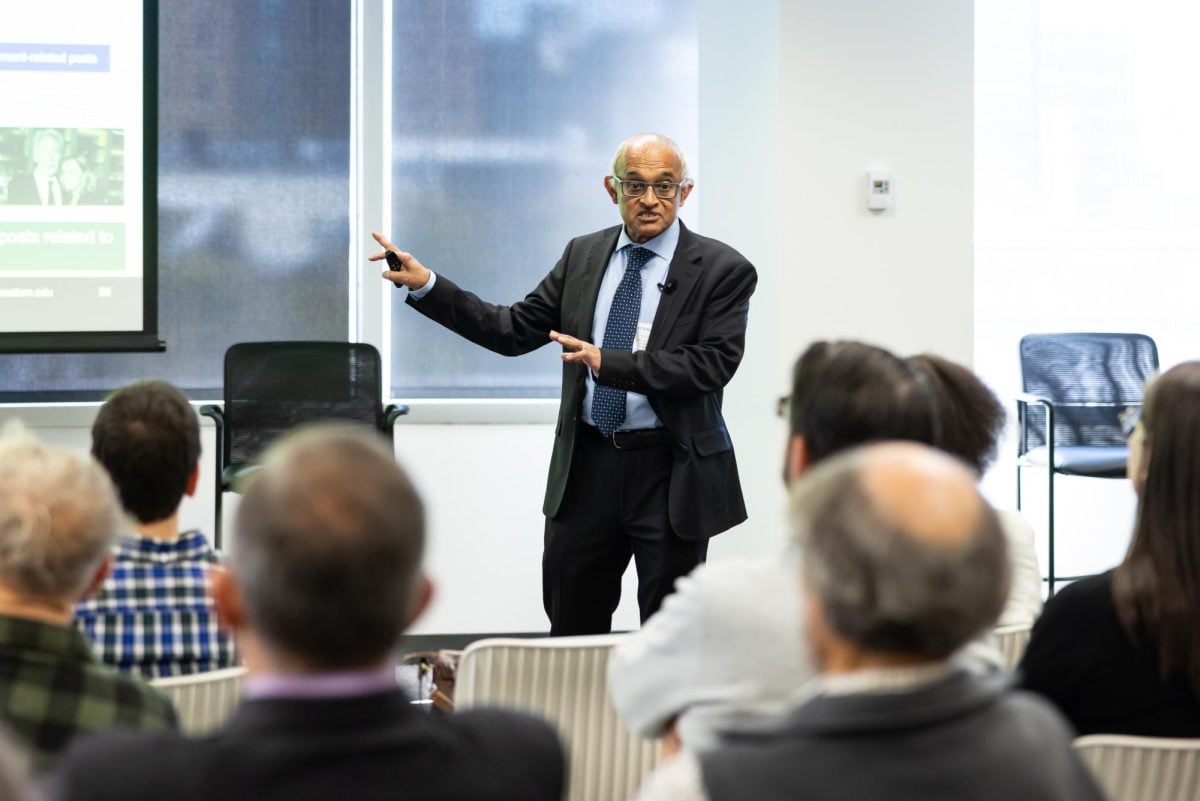Computer science Prof. V.S. Subrahmanian began doing research on artificial intelligence and counterterrorism almost 20 years ago. People thought he was “nuts” for exploring the two fields, he said.
Subrahmanian, however, knew the data was there — things just hadn’t fallen into place yet.
“I’m trying to stay one step ahead as opposed to playing catch-up, which is what most of the industry is doing,” Subrahmanian said.
Subrahmanian now leads the Northwestern Security & AI Lab, which works on projects centered around counterrorism and AI.
NSAIL was launched in collaboration with the Buffett Institute for Global Affairs and the McCormick School of Engineering three years ago, Subrahmanian said. Undergraduates, graduate students and postdoctoral students as well as staff members from other NU departments contribute to the lab’s work.
On Oct. 17, the lab hosted its third annual Conference on AI & National Security, where lab researchers presented the various projects they are working on.
The Drone Early Warning System project — presented by Valerio La Gatta, an NSAIL postdoctoral researcher — focused on predicting the trajectory of a drone and determining whether it is threatening.
The project was produced with data provided by the Dutch National Police, Subrahmanian said.
NSAIL has also conducted extensive research on the use of deepfakes — artificially manipulated content including audios, images or videos.
The lab’s Global Online Deep Fake Detection System project helps journalists determine if content is artificially generated.
To use the platform, journalists sign up with an email linked to their publication and then upload content on the website. The platform is only open to journalists, and currently, there are around 50 users, Subrahmanian said.
Subrahmanian has also collaborated with professors across the world on various projects.
Daniel Linna Jr., the director of law and technology initiatives at Pritzker School of Law, worked with Subrahmanian on a paper about questions that need to be addressed if governments want to use deepfakes in foreign policy.
“There’s huge opportunities at this AI and law intersection to do a lot of good things, including improving access to justice in the rule of law, and that’s one of the reasons why I’m so excited to be part of NSAIL,” Linna said.
He said despite what people may think, it’s often hard to determine if a piece of content is a deepfake.
Subrahmanian added that the U.S. has always been a leader in studying the fields of artificial intelligence and counterterrorism. He added the work being done has come a long way since the beginning of his career.
Tonmoay Deb, a second year computer science Ph.D. candidate, echoed Subrahmanian’s sentiment. He said because of the lab’s wide reach, they are able to build really incredible stuff.
“We are pioneering in this field by both merit and also by (creating) connections with the real-world people that actually care about this stuff,” Deb said.
Email: [email protected]
Related Stories:
— Northwestern professors pioneer multidisciplinary AI research
— Northwestern community members discuss use of AI program ChatGPT to write academic papers
— University Libraries offers workshop for students on generative artificial intelligence






